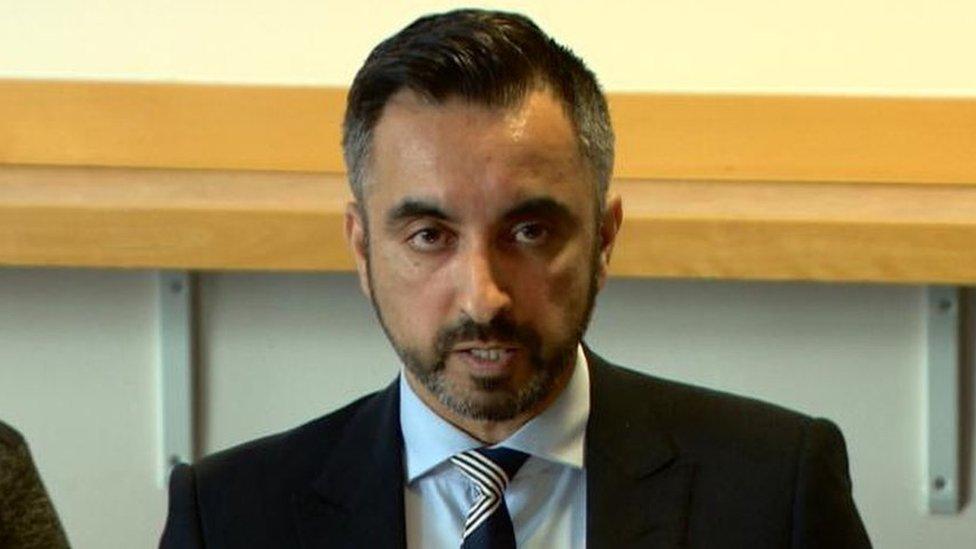Tough childhood and police beating made me a lawyer
- Published
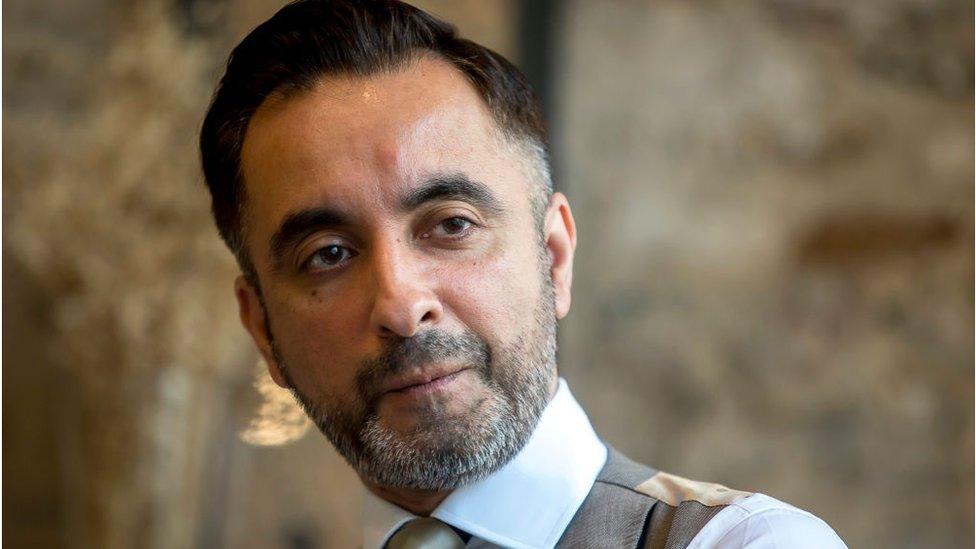
Aamer Anwar says people automatically assume that his career as a high-profile human rights lawyer flows from the night in November 1991 when he had his teeth smashed out in a racist attack by the police in Glasgow.
The 55-year-old tells BBC Scotland's Stark Talk he was an angry young man who was constantly arrested and brutally treated by police for staging anti-racism campaigns.
But more recently he has reflected on how his childhood, growing up of Pakistani heritage in Liverpool, shaped him.
"It has taken the last few years to realise I was hiding a secret," he says.
"It is rooted from as a child, not being able to win battles - at home or in the school playground.
"Where I grew up in Liverpool in the 70s, the era of the National Front, it was tough," he says.
"It was tough being a young Pakistani boy dealing with racism. It was tough coming home to a tough upbringing where you did not bat an eyelid, you did not talk back, you did not talk about your feelings."
His bus driver father, who now has dementia, was the only person he has ever really been scared of, he says.
He remembers coming home with blood on his clothes after a fight with a boy who had racially abused him. When his dad found out what happened he slapped his son for crying.
Anwar never again told his mum or dad about racist abuse.
He says: "Even to the point when I am 21 or 22 and I had my teeth smashed in and I'm lying in a hospital and I want my mother.
"I didn't tell them until my face was healed."
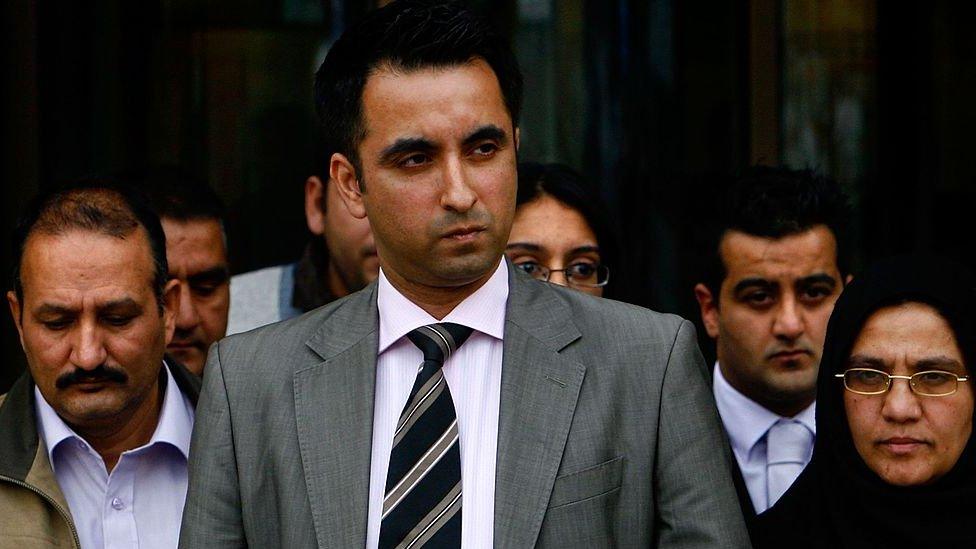
Aamer Anwar in 2007, eight years after he graduated in law
Anwar's parents were middle class and well connected in Pakistan but struggled in England.
There had been talk of them returning to Pakistan but a military coup in 1978 saw many friends arrested and they abandoned the idea.
Anwar tells Edi Stark he did well at school but he got "cocky" and did not work when it really mattered.
He only went to Glasgow because his A-level results were so bad that he could not get in anywhere else.
He had wanted to be a pilot but his eyesight was not good enough so he chose to study mechanical engineering so he could get into the RAF.
While at university, he became a student activist and led campaigns against racism which led to the fateful night in 1991 when he was arrested for flyposting in Glasgow's Ashton Lane.
During the arrest his head was slammed into the pavement by police officers and he was kicked so badly he could not walk for two weeks.
His mouth was so painful he fed through a straw.
He became an even more radical campaigner and was arrested dozens more times.
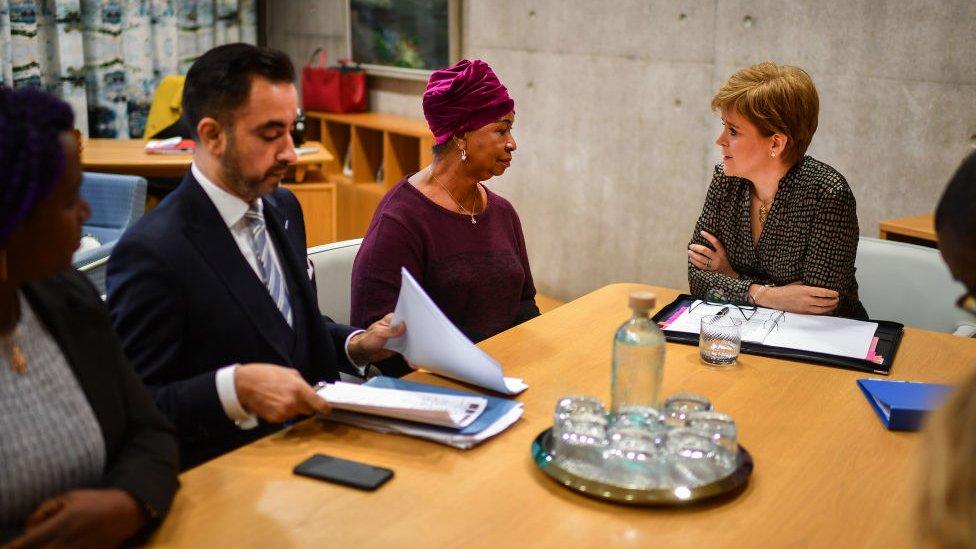
Anwar spent years campaigning for a public inquiry into the death of Sheku Bayoh
Then four years later, in 1995, he made legal history when he successfully sued Strathclyde police for the racially-aggravated assault.
The incident led him to take up law, graduating from Strathclyde in 1999 at the age of 31.
While he was still a student Anwar began to campaign on behalf of the family of Surjit Singh Chhokar, who had been stabbed to death in North Lanarkshire.
One man had already been cleared but Anwar was the family spokesman when another trial ended in acquittal the following year.
After the second trial, Anwar gave a furious speech on the steps of the court in which he said: "We have two systems of justice at work in this country - one for whites and a different one for blacks and the poor.
"The Crown Office is a white gentleman's colonial club shrouded in the vanity of wigs and gowns, relatively unchanged for 400 years."
It would take a further 16 years to secure a conviction in the case and only then after a change in the law allowed Ronnie Coulter to be prosecuted for a second time.
Anwar says he was finally vindicated.
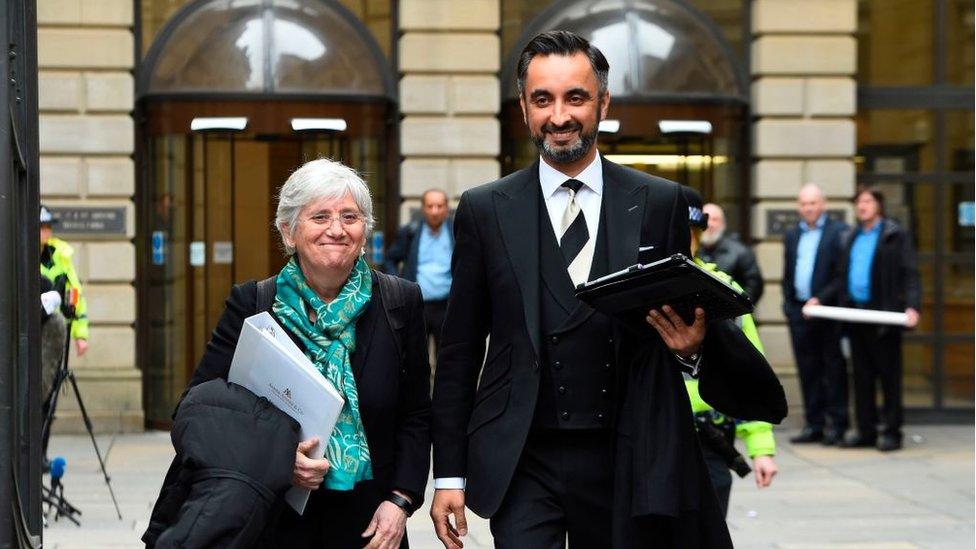
Anwar with former Catalan education minister Clara Ponsati
Other high-profile cases include Catalan politician Clara Ponsati and Sheku Bayoh, who died while being restrained by police in Kirkcaldy, which took seven years to reach a public inquiry.
He is also representing families at both the UK and Scottish Covid inquiries.
Anwar is very sensitive to the perceptions of him as an ambulance-chaser or someone who makes a fortune out of legal aid.
He says that most of his work is taken on for free - pro bono - and it can be years before he gets any payment.
"Sheku Bayoh, for the first five years of that case, where we fought to get it to a public inquiry, we did it for free," he says.
"When I did Lockerbie, for seven and a half years we did it pro bono.
"There is no money when you have to set up and work day and night to do the campaigns."
He says he feel "blessed" and makes a comfortable living.
His big weakness is for sharp suits, he says.
"It is like a steel exterior to give you confidence," Anwar says.
"If I dressed like a tramp there would be criticism
"I apologise for the suits if that gets people's noses out of joint but apart from that it has been tough over the years."
Related topics
- Published15 February 2023
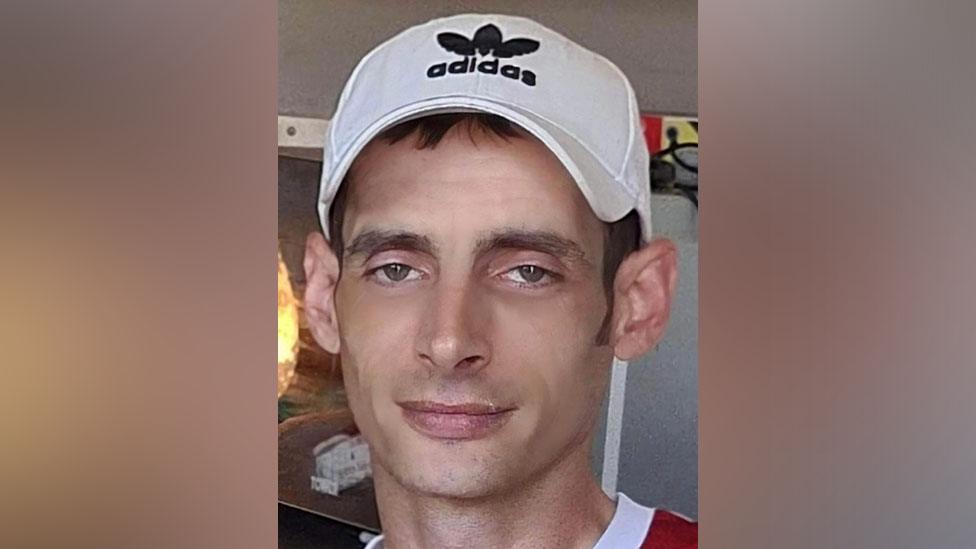
- Published21 November 2022
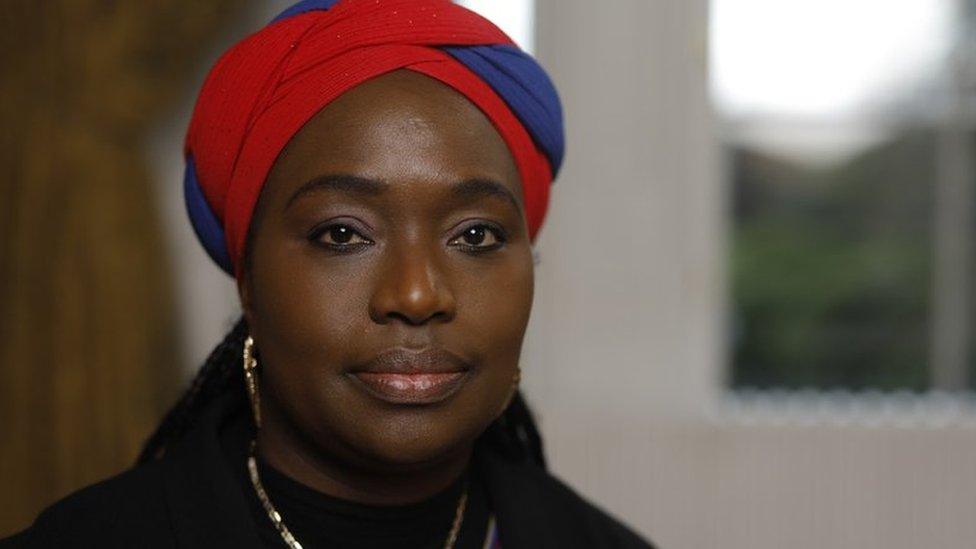
- Published31 October 2016
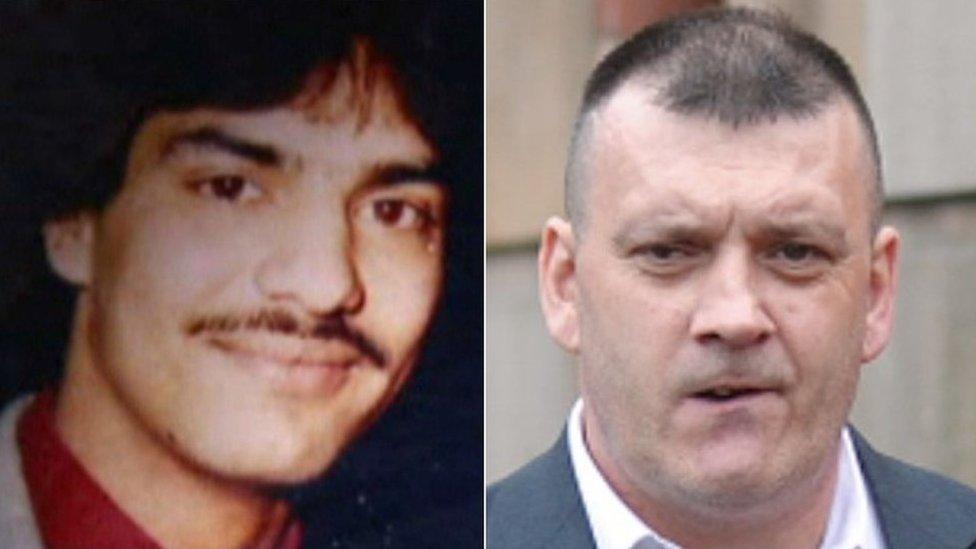
- Published25 July 2022
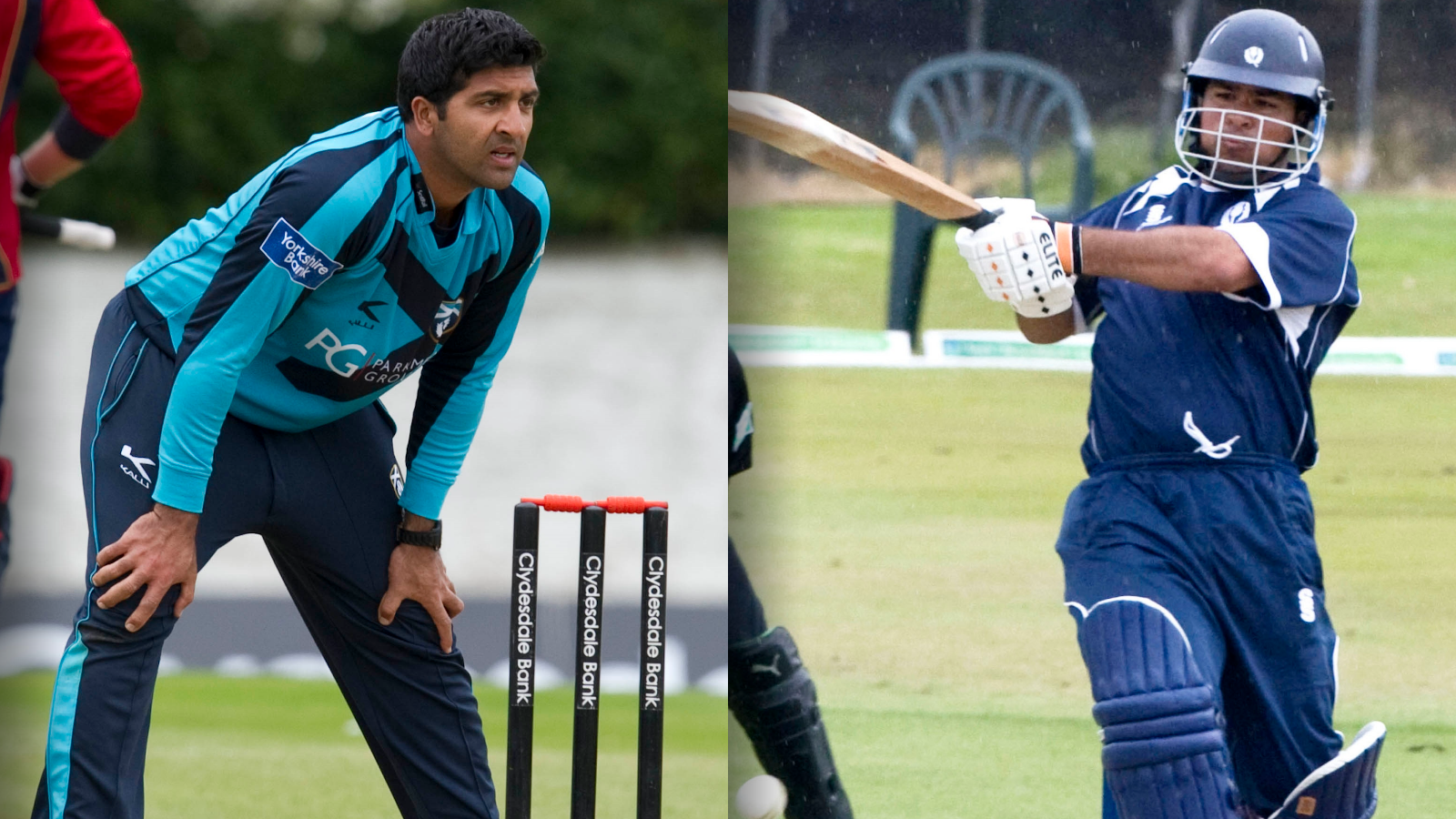
- Published27 October 2022
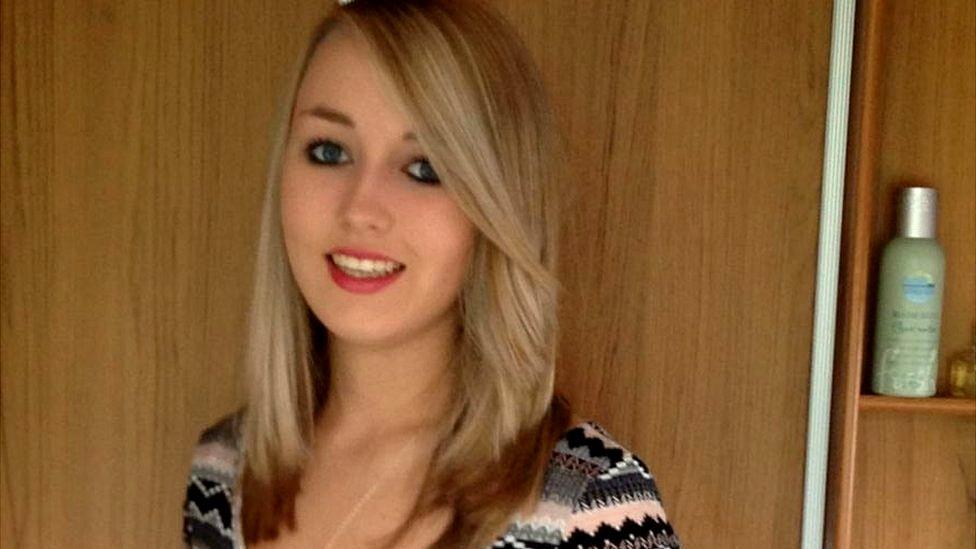
- Published3 April 2016
